I have been focussing my research on peacebuilding anthropology, social media and digital governmentality. My current research focus is on digital communication topics, e.g. development blogging, the use of Twitter in international policy arenas and critical research on the ‘open data’ discourse.
Last but not least, I am working on research that critically examines discourses around social entrepreneurism in development, including debates on ‘DIY aid’, volunteering/voluntourism and the changing nature of development studies teaching.
I am blogging regularly at Aidnography. Pre-prints of publications as well as further information can be found on my Academia.edu profile
by Ulrica on 2013 December 11 11:38
Which new forms of sociability do on-line video platforms generate? Which is the actual transforming power of participatory video practices? Is on-line video transforming traditional forms of protest and political activism in itself? These are questions that will be discussed in a new GEDISA volume.
The editors are calling for a critical debate on the subject, and welcome contributions which approach on-line video in general, and video activism on the Internet in particular.
Other subjects of interest include:
- Socially transforming experiences based on the use of on-line video
- Impact of on-line video practice within the public sphere
- Visibility of minorities
- Digital video and human rights (witness.org)
- Participatory experiences based on audiovisual technology
Deadline for proposals is 27 January, 2014. For further information, read the full call here.
by Ulrica on 2013 October 25 14:33
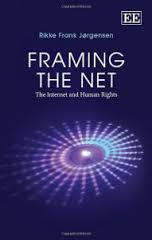 “Framing the Net” is the title of a new book that examines how human rights are being applied in the digital era. The author behind this timely book is Ørecomm participant Rikke Frank Jørgensen who defended her PhD on the subject at Roskilde University last year.
“Framing the Net” is the title of a new book that examines how human rights are being applied in the digital era. The author behind this timely book is Ørecomm participant Rikke Frank Jørgensen who defended her PhD on the subject at Roskilde University last year.
Can Internet governance be better aligned with human rights law and standards of compliance? This is one of the questions she sets out to answer. She does so by suggesting four framings to be examined: the Internet as Infrastructure, the Internet as Public Sphere, the Internet as Medium and the Internet as Culture. Two chapters on women’s use of ICT in Uganda and the community life of German Wikipedia gives a practical side to the theoretical argument.
From publisher’s blurb:
‘Understanding the Internet is key to protecting human rights in the future. In Framing the Net, Rikke Frank Jørgensen shows how this can be done …’
– Wolfgang Benedek, University of Graz, Austria
‘Rikke Frank Jørgensen has given us a thoughtful and competent contribution to a debate of increasing global importance. Her theoretical analysis and practical case-study stimulate critical reflection on how we should connect the primary moral domain of our time – human rights – with the primary infrastructure for global communication, the Internet. This book is a must read for all who engage with the search for meaningful and practical normative directions for communications in the 21st century.’
– Cees J. Hamelink, University of Amsterdam, The Netherlands
Don’t miss out on this interesting book! Read more about it here.
by Ulrica on 2013 October 4 15:14
 How does communication theory serve and limit social change? The academic journal Communication Theory will dedicate a special issue on “Communication for Social Change” and invites authors to submit papers on the above subject.
How does communication theory serve and limit social change? The academic journal Communication Theory will dedicate a special issue on “Communication for Social Change” and invites authors to submit papers on the above subject.
Contributions could for example analyse current theoretical developments in advocacy and communication for and about social change, or critically assess special approaches such as advocacy communication, behavioural change communication, participatory communication or communication for sustainable social change.
Deadline for submission is 1 February, 2014. For more information on relevant themes and requirements for submission, see the full call here.
by Robin on 2013 May 23 14:19
This PhD course will focus on the role of mass mediated and digitally networked forms of communication in transnational advocacy and activism campaigns, spanning the spectrum of social change agency from information dissemination, to networking and mobilization. From the “Twitter revolution” in Iran, to the Satellite TV and social media conveyed uprisings of the Arab spring and activist movements’ mediation of protests against austerity programs and the drivers of the financial crisis in the industrialized and financial centers of the world, networked online media have seemingly played a prominent role in the constitution, identity-formation and reflective self-understanding of new social actors and movements on a global scale. (more…)
by Robin on 2013 May 13 16:21
The 2nd Nordic Conference for Development Research was already announced on the Ørecomm site. Deadline for papers (abstracts) is now drawing close: 3 June 2013. See conference site for call and how to submit. The conference will be held 14-15 November 2013, in Espoo, Finland.
Of special interest to readers of orecomm.net is working group 16 on C4D:
“Does it work?
Communication for development in a critical vein”
This group is organised by Hilde Arntsen (Oslo), Denise Namburete (Maputo) and Thomas Tufte (Ørecomm, Roskilde).
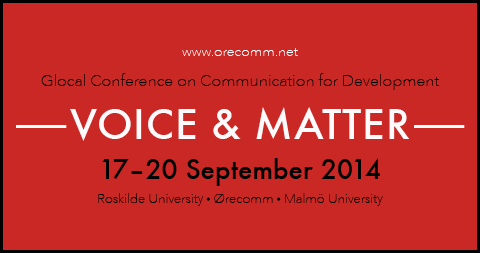
About
Voice and Matter is the fourth annual Communication for Development conference arranged by Ørecomm, this year merged with Roskilde University’s biannual scientific conference, Sunrise.
The 4 day conference is open to anyone with an interest in Communication for Development. Academics, practitioners, artists, filmmakers, activists and entrepreneurs – we invite actors across the whole field to take part.
We hope that you will enjoy the opportunity to network with international communication and development experts, to be challenged and inspired, as much as we do.
Programme
The programme will offer a mix of keynotes, paper presentations, workshops, panel discussions and film screenings.
Panels and workshops will discuss issues such as:
- The role of media and communication in the post 2015 agenda
- Media, empowerment and civic agency
- Participatory video and interactive documentary
- Cultural Studies and ComDev: Remembering Stuart Hall
- Voice and the Return of the Politics of Hope
- Political Economy of the Development Industry
Confirmed speakers and panelists are, so far:
- Charlotte Petri Gornitzka (Swedish International Cooperation Agency, SE)
- Chris High (The Open University, UK)
- Debra Spitulnik Vidali (Emory University, USA)
- Faye Ginsburg (New York University, USA)
- Florencia Enghel (Karlstad University, SE)
- Gudrun Dahl (Stockholm University, SE)
- Jo Tacchi (RMIT, AU)
- Karin Wilkins (University of Texas, USA)
- Marjan Besuijen (Making All Voices Count, ZA)
- Nigel Rapport (University of St Andrews, UK)
- Paula Chakravartty (New York University, USA)
- Pegi Vail (New York University, USA)
- Sharath Srinivasan (University of Cambridge, UK)
- Stefania Milan (Tilburg University, NL)
- Susanne Schech (Flinders University, AU)
- Thomas Hylland Eriksen (Oslo University, NO)
We are also happy to announce that our film-screenings will include Pegi Vail’s film Gringo Trails.
Theme
When Nick Couldry published his book ’Why Voice Matters – culture and politics after neoliberalism’ in 2010, he delivered a strong critique of neoliberalism and it’s lack of ability to provide the means for people to voice their opinions. He also criticized the media for reinforcing neoliberal values. However, possibly the most important point he raised was that gaining voice is not enough – not enough for society to change, not enough for the material conditions we live under to improve, and for other visions of society to thrive.
While voice, and the polyphony of concepts related to it – such as participation, agency, narrative and civic engagement – is crucial in any vision of democracy and a just society, it is of vital importance for those whose life depends on the material dimension of development. For them, gaining and exercising voice relates directly to critical matters like life conditions, health services, employment, education and environment.
In Academia there is debate about a “material turn” in the humanities as well as in the social sciences, that is, a renewed interest in the relation between the material and power. The Internet of Things is an emerging research area where the notion of infrastructure attains a new meaning that challenges the still prevailing dichotomy between spirit and matter.
Voice and Matter aims to explore the dynamic relationship – and possible convergence – between voice and matter in the context of communication for development theory and practice.
Call for Abstracts
Ørecomm invites researchers, students, practitioners, authors, artists, filmmakers and entrepreneurs to submit abstracts within five different work-streams:
- New Social Actors and ICT for Development
- ICT4D Without ICT4G?
- The Present and Future of Development Journalism
- Fiction Matters
- Histories of Diaspora
Read the full call here.
Deadline for submission of abstracts is 10 June 2014 (extended deadline).
More information
When? 17–20 September 2014
Where? Roskilde University (17-18 Sep) and Malmö University (19-20 Sep)
Welcome!
by Ørecomm on 2013 February 16 03:03

10 years after the World Summit on the Information Society UNESCO is now arranging the first WSIS+10 review meeting, to take place at UNESCO headquarters in Paris, France, 25-27 February 2013.
WSIS set a common vision of societies in which information and knowledge play critical roles in enabling the development of countries, societies and individuals, including those marginalized and the most vulnerable. In 2015, the WSIS outcomes implementation will be reviewed by UN General Assembly. The review meeting will assess the progress made, look at ongoing and future ICT trends and build a vision for new information/knowledge societies in the framework of the overall WSIS review process towards 2015.
More information on the event, programme, remote participation, background documents and more is available on the WSIS+10 website.
by Ørecomm on 2013 February 6 18:38
 Journal of Latin American Communication Research invites manuscripts and proposals to the Volume 3, Issue 2, dedicated to “Latin American Critical Thinking”. The issue looks for papers that expand or critique our understanding about the development of critical thinking in Latin America, a perspective that have brought an important corpus of knowledge to communication studies. What is the current state of critical thinking in the region? How is critical thinking facing the challenges of new media? How is the map of media concentration? Which are the regional policies for media and communication? What is the validity of traditional positions in critical thinking to understand the currents dynamics of society? These are themes of interest for the upcoming issue – but also other proposals are welcome.
Journal of Latin American Communication Research invites manuscripts and proposals to the Volume 3, Issue 2, dedicated to “Latin American Critical Thinking”. The issue looks for papers that expand or critique our understanding about the development of critical thinking in Latin America, a perspective that have brought an important corpus of knowledge to communication studies. What is the current state of critical thinking in the region? How is critical thinking facing the challenges of new media? How is the map of media concentration? Which are the regional policies for media and communication? What is the validity of traditional positions in critical thinking to understand the currents dynamics of society? These are themes of interest for the upcoming issue – but also other proposals are welcome.
Submission deadline is 30 April 2013; expected publication 30 October 2013. More information here.
by Ørecomm on 2013 February 4 14:03
 Recent developments in digital communication technologies have challenged commonly held notions of media systems and the power and production relations that they involve. The networked, global nature of new media challenges has established regulatory frameworks for mass- and interpersonal communication, and displaces previously well-known markets and business models. For example, the introduction of new platforms (smartphones, tablets) not only makes content available to consumers in new ways. It also undermines existing constellations between actors at different points in the chain from content production to consumption.
Recent developments in digital communication technologies have challenged commonly held notions of media systems and the power and production relations that they involve. The networked, global nature of new media challenges has established regulatory frameworks for mass- and interpersonal communication, and displaces previously well-known markets and business models. For example, the introduction of new platforms (smartphones, tablets) not only makes content available to consumers in new ways. It also undermines existing constellations between actors at different points in the chain from content production to consumption.
The aim of this special issue is to promote critical discussion about the intersections between technology, power and political economy, based on systematic theoretical and empirical analyses.
Topics of interest include (but are not limited to):
- new vocabularies of power
- old mass media in new media environments
- new communication technologies and political and regulatory bodies
- social media, democracy and political power
See the full call here. Deadline for submissions: 10 March 2013.
See also other calls, a.o. for “Media and Civic Engagement” with deadline 1 September 2013.
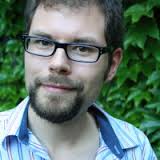
 “Framing the Net” is the title of a new book that examines how human rights are being applied in the digital era. The author behind this timely book is Ørecomm participant
“Framing the Net” is the title of a new book that examines how human rights are being applied in the digital era. The author behind this timely book is Ørecomm participant 




 New PhD opportunities at the University of Leicester
New PhD opportunities at the University of Leicester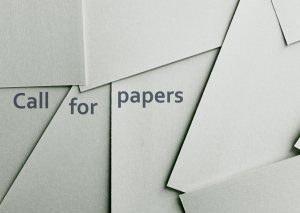 Call for Abstracts: New Directions in Media, Communication and Sociology (NDiMS) Conference
Call for Abstracts: New Directions in Media, Communication and Sociology (NDiMS) Conference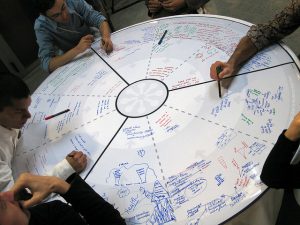 Ørecomm Team to Gather at the University of Coimbra
Ørecomm Team to Gather at the University of Coimbra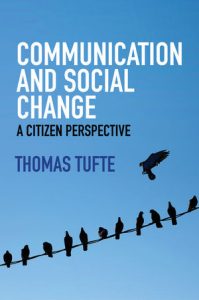 “Communication and Social Change – A Citizen Perspective” Published
“Communication and Social Change – A Citizen Perspective” Published C4D Network to Sum Up Global Communication for Development Practice
C4D Network to Sum Up Global Communication for Development Practice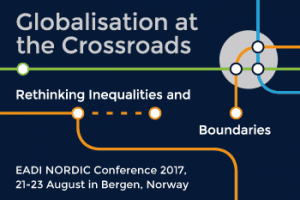 Entering Media and Communication into Development Conferences?
Entering Media and Communication into Development Conferences?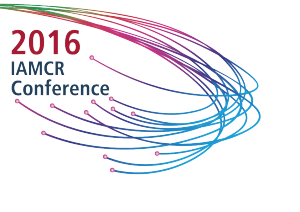 IAMCR Conference 2016: Communication for Development Highlights
IAMCR Conference 2016: Communication for Development Highlights Glocal Classroom Revisited – Storytelling & Social Change Leicester-Malmö
Glocal Classroom Revisited – Storytelling & Social Change Leicester-Malmö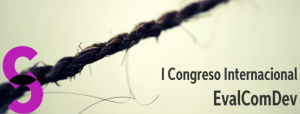 I EvalComDev International Conference: Call for Papers
I EvalComDev International Conference: Call for Papers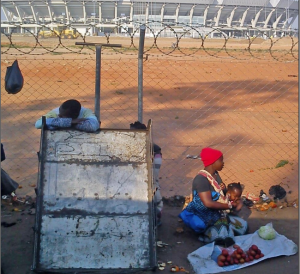 Looking for Media and Communication in Development Conferences: Devres 2016
Looking for Media and Communication in Development Conferences: Devres 2016